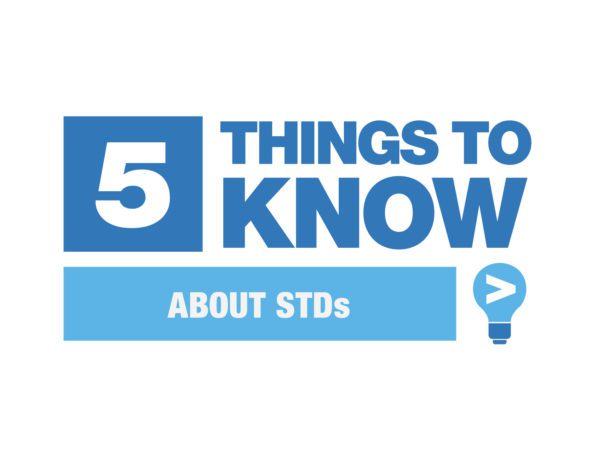Gonorrhea
Gonorrhea is a common STD, especially among teens and people in their 20s. Sometimes called “the clap” or “the drip.” Gonorrhea may not show symptoms. Left untreated, it can cause infertility and pain in both women and men. Once diagnosed, it is easily cured with antibiotics. Doxy PEP is an option to prevent infection within 72 hours after exposure.
Find STD Testing Near You
Click on a question below to learn more about gonorrhea.
- How do you get gonorrhea?
- What are the symptoms of gonorrhea?
- What's involved in gonorrhea testing?
- How do you treat and cure gonorrhea?
- What happens if gonorrhea is not treated?
How do you get gonorrhea?
Gonorrhea is a bacterial infection usually transmitted during vaginal, anal or oral sex. It is spread when semen (cum), pre-cum, or vaginal fluids get on or inside the genitals, anus or mouth. Gonorrhea can be passed even if the penis does not go all the way in the vagina or anus.
Gonorrhea can also be passed to a baby during birth if the mother has it and is not treated.
When used consistently and correctly, condoms protect against gonorrhea and many other STDs.
What are the symptoms of gonorrhea?
Like most STDs, gonorrhea often does not show any symptoms, or the signs may be so mild you don’t even notice them. The only way to know is to get tested.
When symptoms do appear, it is usually within a week of infection and may include: pain or burning when peeing, abnormal discharge from the vagina or penis, and pain or swelling in the testicles.
Gonorrhea can also infect the anus if you have anal sex, or may spread to the anus from another part of the body (like by wiping after using the bathroom). Anal gonorrhea often does not have any symptoms but signs can include itching in or around the anus, discharge from the anus, or pain when pooping.
What's involved in gonorrhea testing?
There are different tests for gonorrhea. It can be as simple and easy as peeing in a cup. Some healthcare providers might use a swab (like a big Q-tip) to take cell samples from the penis, cervix, urethra, anus or throat. The samples are tested for gonorrhea bacteria.
To find free and low-cost STD testing near you, go to greaterthan.org/services.
How do you treat and cure gonorrhea?
Gonorrhea can be easily cured with antibiotics prescribed by a healthcare provider.
It is important to complete the full treatment, as prescribed by your healthcare provider, even if symptoms go away sooner. The infection stays in your body until you finish the antibiotics. Also, do not share your medicine with anyone or take someone else’s.
Some healthcare providers may give a separate dose of antibiotics for your partner(s) so you do not re-infect each other or anyone else. Do not have sex until you have finished treatment.
Get tested again in 3-4 months to make sure the infection is gone and you were not re-exposed.
If you were exposed to gonorrhea within the last three days, doxy PEP may help. This medication must be taken within 72 hours, ideally within 24 hours, after sex to prevent infection. Find doxy PEP near you.
What happens if gonorrhea is not treated?
Untreated gonorrhea can cause pelvic inflammatory disease (PID) in women. Women with PID may not realize they have it, but left untreated it can cause pain, infertility or ectopic pregnancy.
Pregnant women with untreated gonorrhea can pass it to their babies during childbirth. It can cause blindness, joint infections, or blood infections in newborns, which can be deadly.
In men, untreated gonorrhea can spread to the epididymis (a tube that carries sperm from the testicles), and can cause pain in the testicles. Rarely, it can cause infertility.
The information on this page is adapted from the CDC and Planned Parenthood.
Getting Tested
HIV and other STD testing is available at most doctor’s offices and health clinics. Many health departments also offer testing. It’s fast, easy and most people pay little or nothing.
Doxy PEP!
Plan B for some common STDS.
Doxy PEP is medication taken within 72 hours after sex to prevent some common STDs. Studies show doxy PEP is very effective in reducing the risk of getting syphilis, gonorrhea and chlamydia among men who have sex with men and transgender women. Learn more about this important STD prevention tool.


